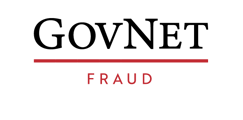The Counter Fraud conference 2020 was a huge success for collaboration and knowledge sharing across the public sector fraud and error spaces.
Talks from CIPFA, Cabinet Office, NHS Counter Fraud Authority, Charity commission and other brought to light many key facts and statistics that highlighted just how much there still is to be done in the fight against fraud across local and central government in the UK.
Of course, it wasn’t all doom and gloom – the event was also a fantastic showcase of the innovative initiatives being undertaken in local government, the collaborations already in place, success stories, how the UK's public services are using and sharing data, and the career paths being created to get new talent into the counter fraud profession e.g. through the Investigator Apprenticeship scheme.
Here are some of our key takeaways from the conference:
- The profession is diversifying, with anti-fraud expertise now used widely in Data, Analytics, Money Laundering, Fraud, Risk Assessment, Bribery and Corruption, as well as Policy and Legal. Multiple sectors are also coming into the profession, including a great number from local government, charity, academia and the financial sector also playing a significant role within it, and contributing to the future development of public sector counter fraud.
- The Government Counter Fraud Function membership has grown to 6,139 from 11 organisations and will be rolled out to Local Authorities and Police across 2020
- 90% of government departments already meet the Counter Fraud functional standards
- Over 50% of fraud is detected by Whistleblowing or by accident. It is crucial to have an organisational culture which encourages people to speak out without fear, and to have clear guidelines and policies in place so that employees know they are protected.
- Strategic priorities for the Government Counter Fraud Function for 2020 include:
- Building capability across government and supporting organisations to evolve
- Innovating in intelligence sharing and the use of data
- Increasing our understanding of risk and threat
- Close working with cyber security on shared threats and opportunities
- Minimising loss in areas where this is known loss
- The largest loss to fraud within the NHS from is as a result of procurement and commissioning, patient fraud, contractor fraud and internal fraud. This is estimated to cost £1.27 billion annually. NHSCFA’S strategic direction for the next three years will centre around leading and influencing the fraud prevention response across the whole NHS.
.jpg?width=635&name=G21FRAUD%20(6).jpg)
- HM Revenue & Customs are leading the development of the new Counter Fraud Investigator Apprenticeship to recruit and train future investigators to a high national standard. Up to £15,00 will be available for each apprentice, as authorized by the Education and Skills Funding Agency and will provide a route-way into becoming a member of the Government Counter Fraud Profession. They are developing two curriculums – one for criminal and one for civil investigations; with recruitment starting in late summer 2020
- There is a growing conversation in industry around the ethical adoption of AI and what that means:
- HMRC have set up a working group to consider the governance needed and the appropriate elements of a framework for the use of AI.
- DWP have developed cutting edge artificial intelligence to crack down on organised criminal gangs committing large scale benefit fraud; using algorithms that can identify different types of organised attacks on the welfare system
- There have been 7 data analytics pilots in 12 months across 6 departments and 3 agencies. £17.5m of fraud and error savings have been delivered from the pilots and £117m of estimated fraud & error savings will be delivered annually.
- 70% of fraudulent transactions originate on mobile. 81% of breaches are caused by compromised credentials, but to fight back economic crime strategies should include:
- Good password behavior
- Multi-factor authentication
- CAPTCHA
- AI and behavioral analytics
- 69% of charities think fraud (especially cyber-related fraud) is a major risk to the charity sector, and yet 48% of charities do not have sufficient policies and protection in place to prevent fraud from occurring. In addition, 32% of charities say they did not report fraud cases to the police or the Charity Commission. Resources on how to report charity fraud can be found on the Charity Commission news page here.
To learn more, why not join us, 300+ counter fraud specialists and two-tracks of expert, high profile speakers online at the next Counter Fraud conference 2021, taking place virtually on 23rd February 2021.
Jessica Kimbell, GovNet

